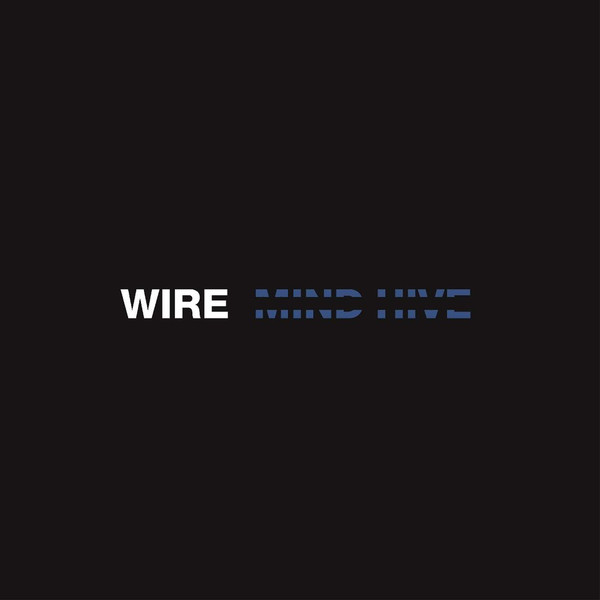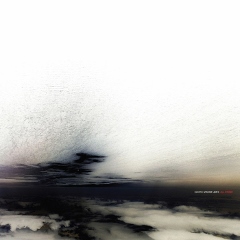MOST READ
- interview with xiexie オルタナティヴ・ロック・バンド、xiexie(シエシエ)が実現する夢物語
- Chip Wickham ──UKジャズ・シーンを支えるひとり、チップ・ウィッカムの日本独自企画盤が登場
- Natalie Beridze - Of Which One Knows | ナタリー・ベリツェ
- 『アンビエントへ、レアグルーヴからの回答』
- interview with Martin Terefe (London Brew) 『ビッチェズ・ブリュー』50周年を祝福するセッション | シャバカ・ハッチングス、ヌバイア・ガルシアら12名による白熱の再解釈
- VINYL GOES AROUND PRESSING ──国内4か所目となるアナログ・レコード・プレス工場が本格稼働、受注・生産を開始
- Loula Yorke - speak, thou vast and venerable head / Loula Yorke - Volta | ルーラ・ヨーク
- interview with Chip Wickham いかにも英国的なモダン・ジャズの労作 | サックス/フルート奏者チップ・ウィッカム、インタヴュー
- interview with salute ハウス・ミュージックはどんどん大きくなる | サルート、インタヴュー
- Kim Gordon and YoshimiO Duo ──キム・ゴードンとYoshimiOによるデュオ・ライヴが実現、山本精一も出演
- Actress - Statik | アクトレス
- Cornelius 30th Anniversary Set - @東京ガーデンシアター
- 小山田米呂
- R.I.P. Damo Suzuki 追悼:ダモ鈴木
- Black Decelerant - Reflections Vol 2: Black Decelerant | ブラック・ディセレラント
- Columns ♯7:雨降りだから(プリンスと)Pファンクでも勉強しよう
- Columns 6月のジャズ Jazz in June 2024
- Terry Riley ——テリー・ライリーの名作「In C」、誕生60年を迎え15年ぶりに演奏
- Mighty Ryeders ──レアグルーヴ史に名高いマイティ・ライダース、オリジナル7インチの発売を記念したTシャツが登場
- Adrian Sherwood presents Dub Sessions 2024 いつまでも見れると思うな、御大ホレス・アンディと偉大なるクリエイション・レベル、エイドリアン・シャーウッドが集結するダブの最強ナイト
Home > Reviews > Album Reviews > Wire- Mind Hive
パンクが大衆の認識に与えた衝撃が完全に浸透するよりも前に、ワイアーはすでにパンクを弄び、嘲笑い、その限界を超越していた。新興のパンク世代が、より純粋であると思われる1950年代のロックンロールの価値観を称揚し、1970年代のプログレッシヴ・ロックの大仰さを軽蔑して根絶を望んでいたのをよそに、ワイアーは〈Harvest Records〉と契約を結んでピンク・フロイドと同じレーベルの所属となり、伝統的ロックンロールに残るブルース・ロックの影響を自分たちのサウンドから排除しようとした。パンク・ムーヴメントの中核に残された者たちは、パンクの限界をより深く突き詰めようとしたが、それがあまりにもあっさりと超えられたことに、ほとんど気づいてさえいなかった。
それから40年以上が経ったいま、ワイアーの音楽が反ロックの衝撃をもたらすことはなくとも、その栄誉の一部はワイアー自身に与えられるべきだろう。彼らが短期間で鮮烈にロックの形態を歪め、解体したことによる影響は長くくすぶり続け、ここ数十年に渡ってロックを再構築しようとする動きに力を与えており、状況は1970年代の終わりに彼らが目指した方針に近づいている。一方でワイアーが少なくとも2008年の『Object 47』以来切り開いてきた道は、ロックとの和解を目指しているかのようであり、ロックの構造に対する遠回しでぎこちない攻撃は健在ながら、自分たちの言葉で曲作りの方法論を探求することで、以前より遙かに心地よい状態に繋がっている。
また現在のワイアーは、過去の自分たちとの対話にますます没頭しているように見受けられる。ロックの既成概念を解剖するアイデアと、ほとばしるポップスの輝きを組み合わせるスタイルは当初から変わっておらず、バンドは過去の自分たちを折に触れて肯定することを厭わない。コリン・ニューマンが皮肉とともに“Cactused”の切迫感のあるサビに込めたメッセージは、バンドによる1979年の珠玉のポップ・ソング“Map Ref. 41 Degrees N 93 Degrees W(北緯41度西経93度)”と同じ無味乾燥なほのめかしを表している。それでもワイアーが現在のロックのあり方を受け入れるなかで辛辣さはわずかに鳴りを潜め、うまくいっているときに得られる純然たる喜びも多少は感じられるようになってきた。
そこには以前に比べて少しだけ緩さも生じているのかもしれない。1970年代のワイアーの楽曲は槍のように脳をきつく刺激するもので、リリース時点ですでに彼らのミニマリズムは完成されており、バンドはそこにさらなる活力を与えて展開させることは望んでいないように見受けられたが、現在、その音楽のなかに新たな活気が生まれる余地が徐々に認識できるようになっており、とくに『Mind Hive』ではその狙いが見事に開花している。“Unrepentant”や最後の“Humming”のような曲では、ブライアン・イーノ風と言ってもいいほどの広大なアンビエントの流れができており、一方“Hung”は、8分近くにおよぶ曲の中で核となるグルーヴを乗りこなせるという自信に満ちている。そうしたエネルギーは、新たに加入したギタリストのマシュー・シムスが持ち込んだ幻惑的な色合いにもたしかに受け継がれており、彼の存在感はますます高まっているが、それはまたバンドが少なくとも過去12年間で辿ってきた進化の道筋に欠かせないものでもある。
ワイアーが変わらず妥協のない挑戦的なワイアーらしさを保っていることは、歌詞に現れている。その歌詞は、現在のインディ・ロック・シーンで彼らの影響を受けているどの若手バンドと比べてもなお、鮮烈で鋭く、謎めいていると言っていいだろう。多くの楽曲では、オンライン空間のまとまりのない空虚な世界観が断片的な形で漂っており、“Humming”では謎めいたロシア人の存在に言及し、喪失感やうまくいかないものごとや頭をよぎる失われた自由について述べていて、“Hung”においては混乱のなかで制御を失われる感覚や「一瞬の疑念」から生まれた些細な混沌がひたすら描かれる。『Mind Hive』全体を貫いているのは、現在まさに動揺し崩壊しようとするこの世界に対する明白な意識だが、それぞれの歌が具体的な何かから引き出されたものだとしても、その直感の閃きを歌詞から辿ることはできない。歌詞に唯一残されているのは、断片的な糸口と脅迫めいた暗示であり、それは力強く感情を込めた、憂鬱と偏執からなる筆致で描かれている。これはおそらくロック・ミュージックに限らず、世界の全体が、ようやくワイアーに追いついたということなのかもしれない。
訳:尾形正弘(Lively Up)
Ian F. Martin
Before punk had even fully made an impact on the public imagination, Wire were already kicking it around, mocking it, transcending its limitations. As the emergent punk generation championed the supposedly purer values of 1950s rock’n’roll and sneered the pomposity of 1970s progressive rock into what they hoped was oblivion, Wire signed to Harvest Records as label mates to Pink Floyd and set about expelling the blues-rock influences of classic rock’n’roll from their sound, leaving the core of the punk movement digging deeper into its own limitations, mostly not even aware of how swiftly they’d been surpassed.
Now, more than 40 years on, Wire’s music doesn’t land the anti-rock impact, but part of the credit for that should probably go to Wire themselves. The slow-burning influence of their short, sharp distortions and deconstructions of rock forms has helped rock music over these past few decades to reassemble itself in a way that brings it closer to the path that Wire had begun charting in the late 1970s. Meanwhile, the path Wire have carved themselves, at least since 2008’s Object 47, feels like a sort of reconciliation with rock, retaining the band’s oblique and angular attacks on its structures but combining that with a greater comfort in exploring its songwriting conventions on their own terms.
The Wire of today also seem to be increasingly engaged in a dialogue with their own past selves. The combination of ideas that dissect rock conventions and bursts of glorious pop has been there since the beginning, and the band aren’t averse to the occasional nod to their past selves. Colin Newman’s irony-laced announcement of the impending chorus in Cactused directly references a similar dry aside in the band’s 1979 pop gem Map Ref. 41 Degrees N 93 Degrees W. Still, there’s a little less sarcasm in Wire’s nods to convention nowadays, a little more comfort in the simple joys of what works.
There’s perhaps a bit more looseness too. Where Wire’s songs in the 1970s were tightly-wound lances to the brain, already at such a point of minimalist completion by the time of release that the band seemed to feel no need to let them breathe and develop, there’s increasingly a sense of breathing space to their music now that is in particularly full bloom on Mind Hive. Songs like Unrepentant and the closing Humming have an expansive, almost Eno-esque ambient drift to them, while Hung has the confidence to ride its central groove for nearly eight minutes. Some of this must surely be down to the psychedelic tint brought by new guitarist Matthew Simms as he increasingly makes his mark, but it’s also part of an evolutionary course the band have been on for at least the past twelve years.
Where Wire are still uncompromisingly and defiantly Wire is in the lyrics, which are still fresher, sharper, more cryptic than nearly any of the younger bands that carry their influence in the contemporary indie scene. The disconnected, spectral presence of the online world haunts many of the songs in a fragmentary fashion; references to an ambiguous Russian presence, a sense of loss, of something gone wrong, of freedoms lost flicker through Humming; the sense of something spinning out of control, of mere chaos born out of a “moment of doubt” pounds its way through Hung. There’s a definite sense running through Mind Hive of our current shivering, crumbling world, but if the songs are drawn from anything specific, access to that spark of inspiration is closed off by lyrics that leave only fragmentary evocations and menacing hints, painted in powerfully emotional strokes of melancholic paranoia. Perhaps it’s not just rock music but the whole world that has only just caught up with Wire.
イアン・F・マーティン
ALBUM REVIEWS
- Loula Yorke - speak, thou vast and venerable head/ Loula Yorke - Volta
- Actress - Statik
- Black Decelerant - Reflections Vol 2: Black Decelerant
- High Llamas - Hey Panda
- The Stalin - Fish Inn - 40th Anniversary Edition -
- KRM & KMRU - Disconnect
- Cornelius - Ethereal Essence
- Kronos Quartet & Friends Meet Sun Ra - Outer Spaceways Incorporated
- Martha Skye Murphy - Um
- Mouchoir Étanche - Le Jazz Homme
- Taylor Deupree - Sti.ll
- John Cale - POPtical Illusion
- Amen Dunes - Death Jokes
- A. G. Cook - Britpop
- James Hoff - Shadows Lifted from Invisible Hands


 DOMMUNE
DOMMUNE






